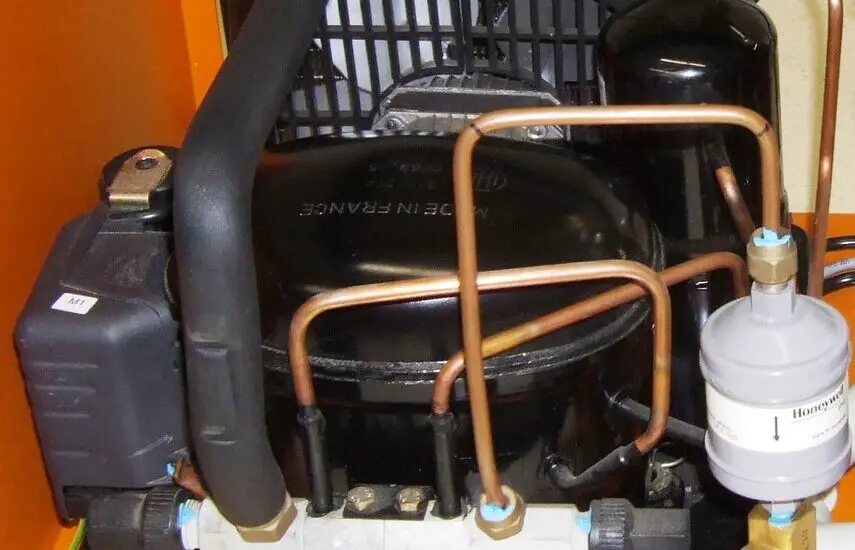Bad condenser symptoms might seem like a topic straight out of a technician’s manual, but trust us, it’s crucial for every refrigerator owner. But what exactly are the signs you should look out for? Buckle up, because we’re about to embark on a journey into the chilling world of refrigerator condensers.

Table of Contents
How a Good Condenser Operates
A top-notch condenser works quietly behind the scenes, converting high-pressure, high-temperature gas into a high-pressure liquid. It’s kind of like a magician turning a rabbit into a dove but with gases and liquids. When the condenser is doing its job well, your fridge stays at the perfect level of cold and runs efficiently.
Bad Condenser Symptoms
But what happens when this unsung hero starts to falter? You’ll notice a few red flags. Increased energy consumption, insufficient cooling, continuous running, unusual noises, and even overheating. These are the cries for help from your condenser.
Increased Energy Consumption
If your refrigerator is acting like a power-hungry beast, your condenser might be the culprit. A faulty condenser works harder than it should, leading to more energy use. Monitor your electricity bill. If it’s as inflated as a parade balloon, you might be dealing with a bad condenser.
Insufficient Cooling
Ever opened your fridge expecting a cold breeze, only to be disappointed? Yeah, your condenser could be on strike. If your fridge feels more like a closet than an arctic oasis, check the cooling performance. Your condenser might be calling for help.
Constant Running of the Refrigerator
A refrigerator that’s always running might seem like a good thing – until it’s not. If your fridge sounds like a marathoner on the last lap, it could be one of the bad condenser symptoms. Take note of this, because nobody likes a fridge that can’t chill, right?
Unusual Noises
Your refrigerator may start sounding like a horror movie if the condenser is failing. Strange noises can be an SOS signal from your condenser. Listen out for sounds that make you think, “that’s new.”
Overheating
If your refrigerator feels like it’s feverish, the condenser might be to blame. An overheating fridge is a sign of a bad condenser. It’s kind of like when you run a fever when you’re not well. So, if your fridge is running a temperature, it’s time to check the condenser.
Check out these other related articles…
Condenser Unit Refrigeration: Your Comprehensive 411 Guide
Condenser Efficiency: Your Ultimate Guide
Condenser Subcooling: Your Comprehensive Guide
Condenser Saturation Temperature: Your Detailed Guide
Condenser Noise: Proven Solutions
Function of a Condenser in a Refrigeration System: 101 Guide
Diagnosing a Bad Refrigerator Condenser
Diagnosing a bad condenser isn’t a task for the faint-hearted. While there are a few self-assessment techniques you can attempt, calling in the professionals might save you a world of trouble. Because a timely fix might be the only thing standing between you and a complete refrigerator breakdown.
Self-Assessment Techniques
Before you call in the pros, there are some simple checks you can do. Look for signs of dust or damage in the condenser coils, listen for strange sounds, and check if the fridge is cool enough. Simple steps that could save you time and money.
Professional Diagnosis
When it comes to diagnosing a bad condenser, sometimes it’s better to leave it to the pros. They’ve got the tools, the skills, and the know-how. Plus, you’ll have the peace of mind knowing it’s been done right.
Consequences of Ignoring a Bad Refrigerator Condenser
If you think ignoring a bad condenser is a viable option, think again. Just like a car with a failing engine, a refrigerator with a bad condenser can lead to more significant, more expensive problems down the line. Remember, a stitch in time saves nine.